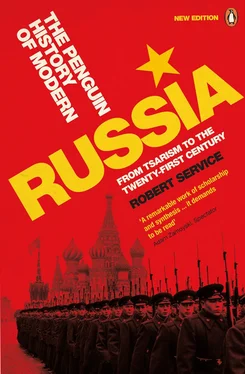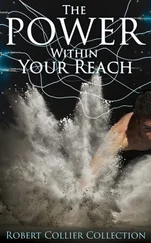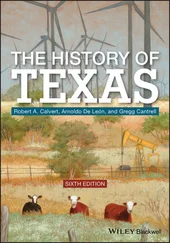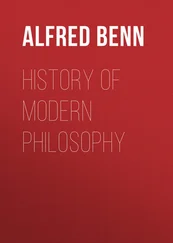Kolbin, Gennadi, 456
Kolchak, Admiral Alexander V., 102, 106, 112–13, 116–17
kolkhozes (collective farms), 183; markets, 194; members refused passports, 208; conditions, 224, 421, 440, 540; and work-force, 243; private plots, 284; under German occupation, 288; rumours of disbandment, 298; wages, 304–5, 328; Khrushchëv’s policy on, 349–51, 358–9, 401; Brezhnev and, 401; run at loss, 402; and family contracts, 470; unpaid under Yeltsin, 516; government credit for, 526; resistance to privatization, 542; see also collectivization; peasants
Kollontai, Alexandra, 50
Kolpino, 97
Kolyma, 179, 329
Komar, Dmitri, 501
kombedy see committees of village poor
Komi, 521
Kommunist (journal), 511
Komsomol (communist youth organization), 140, 171, 199, 361, 538
Komuch see Constituent Assembly: Committee of Members
Kondratev, Nikolai, 145
Konev, General Ivan, 263, 265 , 272
Königsberg see Kaliningrad
Korean war (1950–53), 312, 330, 336
Koreans: deported, 225
Kornilov, General Lavr, 52, 54–7, 60, 82, 88, 102, 113
Korotich, Vitali, 449
Korzhakov, Alex, 531, 532
Kosior, Stanislav, 170
Kosmodeyanskaya, Zoya, 289
Kosovo, 537, 562
Kostov, Trajcho, 311
Kosygin, Aleksei: career, 236, 373, 378; advocates reform, 379–80, 385, 407, 431; relations with Brezhnev, 384; hesitates over Czechoslovak intervention, 387; overseas visits, 388; resignation and death (1980), 403
Kovalëv, Sergei, 519
Kozlov, Frol, 344–5, 364, 373
Kozyrev, Andrei, 512, 536, 537
Krasin, Lev, 70
Krasin, Viktor, 412
Krasnov, General P.N., 67
Krasnoyarsk, 329
Krasnoyarsk Regional Committee, 221
Kravchenko, Viktor, 234
Kravchuk, Leonid, 506
Krestinski, Nikolai, 112
Krichevski, Ilya, 501
Kronstadt, 50, 58, 119, 125, 127, 446
Krupskaya, Nadezhda (Lenin’s wife), 152–3, 195, 227
Kryuchkov, Colonel-General Vladimir A., 496, 499–502
Ksenofontov, F.A., 158
Kuban region, 195
Kühlmann, Richard von, 76
Kuibyshev see Samara
Kuibyshev, Valeryan, 171, 175, 213, 218
Kukly (TV programme), 538, 549
kulaks: status, 6; rejoin communes, 86; Lenin advocates hanging, 108; Lenin proposes rewarding, 121; persecuted, 171, 179–81, 195, 202–3; grain seized, 174; enfranchised under 1936 Constitution, 239; post-World War II demands, 298; see also peasants
Kulichenko, Aleksei, 208
Kunaev, Dinmukhammed, 391, 403, 456
Kurchatov, Sergei, 304
Kurds: deported, 225
Kurile Islands, 273, 308
Kursk, 267, 269, 289
Kursk (submarine), 549
Kutuzov, Mikhail, 134
Kuznetsov, Admiral N.G., 258
labour: agricultural, 7; industrial, 7, 178; movement, 13, 21, 29, 32, 37, 143–4, 540; and administrators, 97, 417; discipline, 243, 416, 469, 516; shortage of skilled, 243; in World War II, 285–6; mobility, 416–17; promotion prospects reduced, 422; unpaid under Yeltsin, 516; see also wages
Labour Party (British), 63, 178
Labytnangi, 329
land: peasant tenure, 5–6, 22, 34, 39–41, 55–6; and gentry, 15–16, 20, 34, 39, 53, 55–6; reform demands in 1906 Duma, 15; redistribution after October Revolution, 67–8, 82, 86–7, 90–1; socialization, 82; privatization delayed, 526, 542, 551
Land Code, 551
Land, Decree on (Lenin’s), 68, 73–4, 85, 87, 90
Land and Freedom (party), 17–19
Landau, Lev, 248
Landowners Union, 88
languages: diversity of, 9–10, 130; see also linguistics; Russian language
Larionov, A.M., 349
Latsis, Martyn, 108
Latvia: demands autonomy, 40; support for Bolsheviks, 83; Germany acquires (1918), 84; soldiers (Riflemen),
87, 103; Soviet republic established (1918), 107; granted independence, 128; awarded to USSR in 1939 Non-Aggression Treaty, 256–7; annexed by USSR, 258, 306, 398; Germans occupy, 261; post-World War II settlement, 270, 306; SS units from, 287; post-World War II deportations, 300; culture downgraded, 316; and Khrushchëv’s denunciation of Stalin, 342; nationalism, 366, 456, 478; Communist Party purged, 367; protest demonstrations, 457, 473–4, 481; independence movement, 482; Yeltsin reassures, 489; resists State Committee for the Emergency Situation, 502; demands independence, 503; declines to join Commonwealth of Independent States, 507
Latvian Popular Front, 482
Lavrov, Sergei, 560
Law on Co-operatives, 451, 460–61
lawlessness see criminality and criminal gangs
Laz people, 131–2
Lazar, Berel, 557
Lazurkina, D.A., 360
League of the Militant Godless, 136, 204
League of Nations, 229
Lebed, Alexander, 532, 533
Left Opposition, 156–7, 161, 164
Left Socialist-Revolutionaries, Party of, 59, 74, 76, 78, 81, 89, 93, 102–4, 107, 110
leisure and recreation, 191, 357, 420–21; see also sport
Lenin, Vladimir I.: leads Bolsheviks, 19, 71–2, 74; 1917 return to Russia, 26, 47; advocates immediate Bolshevik seizure of power, 47–50, 58–60; in hiding in Finland, 50; and socialist proposals to end war, 52; accuses Kerenski, 55; negotiates 1917/18 peace, 62, 68, 75–8, 102; and October Revolution, 62, 65–7; advocates dictatorship, 63–4, 549; revolutionary ideas and aims, 63–5, 82–3, 91–2, 98, 548; forms 1917 government, 66–7; issues decrees, 68–9, 73; Allies’ view of, 70; background and reputation, 70–73, 553; character, 72, 74; economic difficulties, 79–80; expects continuing support, 81; proposes federation of Soviet republics, 84; ethnic origins, 85; and Latvian Riflemen, 87; and workers’ control, 88; language, 92; personality cult, 93, 199, 551; and state capitalism, 96; and state administrative organization, 98–9; and civil war, 101, 104, 106; and murder of Mirbach, 103; advocates terror, 107–8, 145, 227; and Allied victory over Germany, 107; assassination attempt on, 107–8; administrative agreement with colleagues, 110; and central Party administration, 111–12; economic policies, 111; chairs Politburo, 112; introduces federal rule, 114; and regions, 115; and Party purges, 118; favours requisitioning of foodstuffs, 120; favours foreign concessions, 121, 125–6, 159; on rewarding kulaks, 121; and Trotski’s union proposals, 122; and peasant unrest, 124; introduces NEP, 125–7, 150–51; attacked at 10th Party Conference, 127; and republics and nationalities, 129–30 132–3; health decline, 132, 151–3; religious persecution, 135; criticizes Mayakovski, 137; Gorki criticizes, 138 and Civil Code, 145; political testament, 152, 157, 174; death and preservation, 153–4; succession to, 154–5, 157–8, 197, 376; and Stalin’s use of terror, 227; on withering away of state, 239; on overthrow of capitalism, 254; Stalin praises at 19th Party Congress, 326; Khrushchëv proposes return to, 341–2; on co-existence with global capitalism, 352; Western disenchantment with, 398; on literary classics, 419; writings, 419–20, 479; and public debate, 448; Gorbachëv praises, 454; on class struggle, 455; Soloukhin analyses, 479; and Gorbachëv’s reforms, 487–8; denounces politicking, 522; and Russian dominance, 554; April Theses , 47–8; Proletarian Revolution and the Renegade K. Kautsky , 108; The State and Revolution , 58, 63, 98, 361; ‘Theses on a Separate and Annexationist Peace’, 76; What Is To Be Done? , 19, 71, 143
Lenin Collection, 154
Leninakan: 1988 earthquake, 468
Leningrad see St Petersburg
Leningrad Opposition, 160–61
Leningrad State University, 548
Liberal-Democratic Party, 520, 522, 527–8, 532
liberals, 13–14, 18, 48–9
Liberman, Yevsei, 372, 379
Читать дальше












